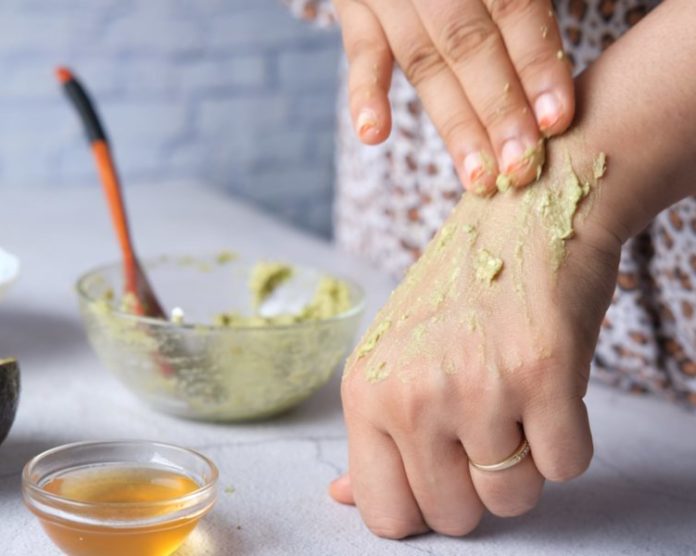Should I use natural or synthetic skincare products? Should I make my own facial masks at home or buy them from the store? Is coconut oil a better moisturiser than a prescribed one? These are all the questions flooding search bars across the internet.
Let’s dissect this topic. Natural versus synthetic.
Disclaimer: the information below does not replace seeking credible medical advice, nor does it seek to diagnose any skin-related issues or medical concerns.
Natural skincare
In the cosmetics industry, the term ‘natural’ is very vague, and not well regulated. This leads to companies using the term all willy nilly. According to Marisa Garshick, a board-certified dermatologists, the lack of legal definition allows companies to also claim that their product is ‘natural’, even it contains ingredients that are not.
For now, let’s just say ‘natural’ refers to ingredients in your products that come straight from nature. Makes sense! This includes things like, clay, plants oil or extracts, and even grains like oats.
Synthetic skincare
Just as the name suggests – it was made in a lab. Synthetic ingredients generally have a longer shelf-life which is more convenient. There are numerous synthetic ingredients that serve as stabilisers and preservatives in formulations, that often get a bad rep.
During the Covid-19 pandemic, and now three years later, we still see that consumers are becoming more and more health conscious. We also see the rise of many wellness and environmentally friendly brands.
It is a very profitable brand identity to have at the moment. And this is where synthetic ingredients lack. The words “made in a lab” is not something appeals to the way consumers are making purchase decisions in 2023.

What side are you on?
I am yet to encounter a dermatologist that is pro all-natural-ingredients. Experts make recommendations based on clinical research – as they should – and generally steer away from things that lack satisfying evidence.
This is where natural ingredients fall short. The amount of medical studies done on synthetic ingredients far out weighs those in the natural field. Not sure why this is the case but I have a feeling it has something to do with the major research budgets of larger companies.
If you had to ask a famous dermatologist what their take is on this debate, you’ll more likely be met with a generic answer like ‘if you have normal skin and are open to experimentation, natural products could work for you’.
But if you have pressing concerns like acne, hyper pigmentation or eczema, then they’ll probably end up prescribing well-researched – synthetic – formulas to treat it.
Why not join the powers of both natural and synthetic?
I want to share my journey with natural, and synthetic, skincare. I struggled with mild adult acne for three years trying everything you can think of. Every acne fighting ingredient you could buy at a pharmacy. It worked for a while, until I developed small pustule bumps all over my skin. It would appear and disappear at random.
NOTHING worked.
Until I decided to visit an owner of a natural skincare range. She told me to immediately drop all my synthetic products including my toothpaste, deodorant and make up. What madness? Ditching all dairy, meat and sugar was also a suggestion (this lasted two days).
To my surprise the bumps went away within three days! Now 6 months later, I am using a combination of prescription acne treatment and my natural cleanser and moisturiser. To make a long story short, I was overwhelming my skin and this manifested in small bumps – there’s no doubt about it.
What I do know is that, the natural approach encourages consumers to limit the amount on ingredients that goes on to the skin and that is an approach I am willing to follow.
But the problem comes in when just about anyone thinks they can create their own skincare in their kitchen. Because it’s mos natural. To name one risk; every ingredient has a PH level – so does the skin. When this acid mantle is disrupted by an ingredient you risk causing more damage. And I have seen the damage essential oils can cause to the skin!
That’s why I will never be an advocate for cooking up your own skincare, but I am willing to say if you find a reputable, pro-nature brand (and you don’t have severe issues or allergies) it could be worth a try.
Some people also find peace of mind when they use natural products that do not harm the environment, an argument that is very relevant in 2023.
Some take-home points:
- You will not find the answer for what works best for you online. You will find helpful information, but there will always be another blog post contradicting what you just read.
- If your skin concern persists past your teenage years for long enough to place your health at risk or effect your mental health do not experiment with tons of products, go see a doctor!
- If you trust a brand, and you’re brave enough, give natural a chance you might save an anemone.
- Do not use the ingredients in your kitchen as skincare products. Natural ingredients still need to be formulated by chemists or experts to be safe to put on your skin.
- Remember – everyone’s skin is different


